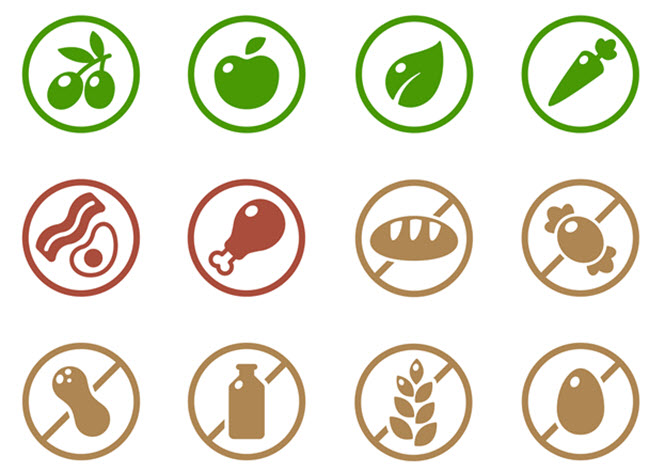Can You Do Keto While Vegan? You'll Be Blown Away by This Surprising Answer
You would think that vegans and ketogenic diet zealots would never be on the same side of health and nutrition. But that's not necessarily true. With a little hard work and research, any vegan can find a way to increase their healthy fat intake while staying true to their values
Are There Benefits to a Vegan Keto Hybrid Diet?
For most people, going keto means an uptake in their animal product consumption. But whether you are already vegan or you are thinking about incorporating vegan foods into your current ketogenic diet, going vegan + keto can give a boost to your mental health. After all, who wouldn't feel better knowing that they aren't contributing to the animal abuse inherent in most commercial farms?
Some people on the ketogenic diet may find it easier to meet their macros by ingesting more questionably healthy saturated fat. But most sources of healthy fats which qualify as vegan-friendly are in fact quite low in saturated fat. They are also higher in things like omega-3 and omega-6 fatty acids which are known for their cardiovascular health properties.
Obviously, any sort of vegetarian or vegan diet - regardless of your macronutrient profile - will be disproportionately higher in fresh produce and, consequently, higher fiber intake. The majority of competent nutritionist agree that the Standard American Diet is woefully low and fiber. But recent research has discovered that prebiotic fiber content from fruits and vegetables has the potential to feed the healthy bacteria in your gut and improve your overall digestive health. Accomplishing this goal is more difficult if you don't try to limit the amount of meat and dairy products you eat. On a less strict ketogenic diet, only net carbs count against you, which gives you plenty of room to eat as many high fiber fruits and veggies as your heart desires.
Lastly, some health experts believe that the Standard American Diet recommends an excessively high amount of daily protein intake. Eating too much protein can be bad for kidney health, among other things. Moderating your protein intake by following a ketogenic diet (contrary to popular belief, you are expected to moderate your protein intake too; just not as much as your carbs) can help you avoid health problems associated with excessive protein consumption and promote healthy kidney function.
Could a Vegan Keto Diet Be Potentially Unhealthy?
The biggest concern surrounding vegetarian and vegan diets is the fact that it is still easier to eat too little protein as opposed to too much. This can lead to dangerous deficiencies in essential amino acids which the body cannot produce on its own. There are certain amino acids you have to get from the food you eat, and limiting your protein sources can give you problems getting those.
Depending on how strict your ketogenic regiment is, you could also be denying yourself the fiber you need for your best colon health. There are certain flavors of the ketogenic diet - especially those that are specifically targeting brain health and neurological conditions such as epilepsy - which rely on total carb counts as opposed to net carbohydrate intake. And while this may be better for brain health in people with neurological disorders, you have to keep in mind that your gut health has an indirect effect on your brain health, too.
You can't be lazy about choosing the right healthy fats on a keto vegan diet without threatening your heart health. Many of these plant-based fats do not have the healthiest ratio of omega-3 to omega-6 fatty acids. Omega-6 fatty acids are healthy in small doses, but too many of them - especially if they start to outnumber your omega-3 intake - are inflammatory and bad for your heart.
At the end of the day, some vegans may have to compromise a few of their principles in order to consume the heart healthy fats and protein they need to succeed on a vegan keto diet. For example, some vegans don't have a problem with eating chicken eggs if they know that the chickens are well cared for and the eggs are humanely cultivated. Some even go so far as to raise their own chickens just to make sure.
There are also types of seafood that, while technically alive, may not necessarily violate vegan principles. Bivalves such as oysters or mussels don't have a nervous system and don't technically feel pain. Therefore, it isn't necessarily inhumane to consume them along with the healthful amount of protein and zinc that they provide.
Deficiencies with regard to essential amino acids, minerals like zinc, and vitamin B12 can lead to a whole host of health problems. Unfortunately, these deficiencies are all too common in vegan and vegetarian diets. Recent improvements in medical tests have shown that just over 90% of vegans and nearly 80% of vegetarians aren't getting enough vitamin B12, which can lead to nerve damage, fatigue, and anemia. Muscle weakness and muscle wasting are common when you don't get enough essential amino acids. Lastly, zinc deficiencies can lead to serious hormone imbalances and negatively affect fertility.
Sources of Healthy Fat on a Ketogenic, Vegan Diet
Below is a vegan-friendly, keto-friendly list of foods you can focus on when starting this hybrid diet. They include:
- Macadamia nuts - these high fat nuts are delightfully high in healthy fat and fiber while being relatively low in carbohydrates
- Avocado - the balance of saturated and unsaturated fat in avocados is not only heart healthy, but incredibly tasty, too!
- Olives and olive oil - pretty much any olive-based food product offers a healthy dose of unsaturated fat as well as flavor
- Anything and everything coconut - from the raw fruit to coconut oil, it's a sweet, tasty way to get the fat and fiber you need on a keto/vegan diet
There are also some supplements you should consider taking in order to maintain good health on a vegan/keto diet:
- Amino acid supplements - anything that contains plant-derived choline, creatine, carnosine, and taurine
- Vitamin B12 - For the health reasons we mentioned above
- Exogenous Ketone supplements - encourage natural ketosis in your body and give you the energy you need to stay on top of your game.
Beyond that, we're pretty sure most vegans are familiar enough with their fruits and veggies to figure out which high fiber, low carb produce will fit in nicely with their macros. If you're a dedicated vegan who's brave enough to go out on a keto adventure, we wish you the best of luck!

